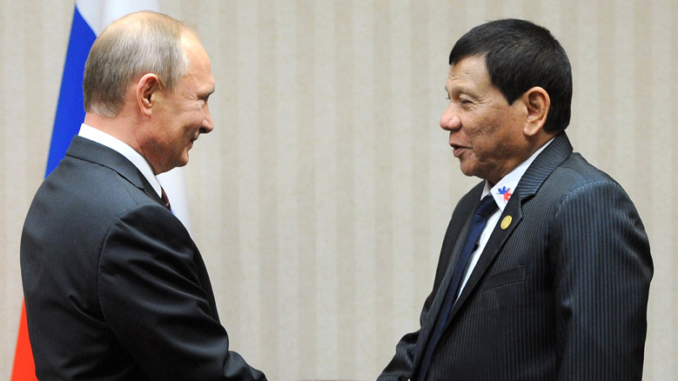
On Monday, the US Embassy was provided with a termination notice for the Visiting Forces Agreement between the United States and the Philippines. The Foreign Secretary for the Philippines, Teddy Locsin, Jr., provided basic details via Twitter:
The Visiting Forces Agreement exempts American forces from most violations of Philippine law. It has been brought to international attention on a few occasions, such as when four military members were accused of rape in 2006; during that incident, the military retained custody of the accused despite protests from Philippine civilians.
The primary purpose of the VFA, however, is to exempt US military members from the various passport and visa restrictions which are otherwise required by international visitors. With the VFA removed the paperwork necessary to have U.S. troops train in the Philippines, or to have any significant quantity of them stationed there, becomes excessive. Removing the VFA will effectively end all U.S. troop presence in the Philippines.
While the United States no longer maintains a base in the Philippines, the former base of Subic Bay has been extensively used for training missions and regular refueling of U.S. Pacific fleet ships.
The termination appears to be a response to the recent rejection of Philippine Senator Ronald Dela Rosa’s U.S. travel visa. As reported by Human Rights Watch:
Dela Rosa was the chief of the Philippine National Police when the nationwide “war on drugs” began soon after Duterte took office in June 2016. He presided over forces that routinely shot and killed alleged drug dealers and users, claiming without proof they resisted arrest. Investigations by human rights groups, including Human Rights Watch, as well as by the media, have found numerous instances in which the police planted weapons and drugs on victims to cover up summary executions. Dela Rosa has been vociferous in defending the anti-drug campaign, calling it a success.
The notification of intent is not the same as a termination; it sets a clock running, and at the end of a 180 day period, the agreement is ended. The notification may instead mark the beginning of a period of intense negotiation to keep current arrangements in place.
Indications are strong that such negotiations will be forthcoming. On the part of the Philippines, the spokesman for President Duterte, Salvador Panelo, indicated that the favor of the United States is not as important as it used to be:
“The president himself seems uninterested in entering any agreement. From the way he talks, it’s like we should be independent for the meantime, let’s not depend too much on other countries.”
Philstar Global
President Trump, on the other hand, has seemingly rebuked his administration for pulling the visa. A recent statement which was widely mocked for suggesting that China holds fair trials was likely meant to be an entreaty toward the Philippines.
Dela Rosa and Duterte stand accused of massive human rights violations specifically because of the “drug war” efforts put into place after Duterte’s election, wherein thousands of suspected drug dealers and users were executed, often without trial and absent any violent resistance, and their property confiscated by the state. Suspicions of abuse of the drug laws were heightened when multiple reporters investigating possible crimes by government agents died or disappeared.
Rather than push back against Duterte’s reported abuses, President Trump praised him and claimed they had a “great relationship” in November 2017, when the pair shook hands and had a joint press conference during that year’s ASEAN (Association of Southeast Asian Nations) meeting. Despite the preponderance of questions about Duterte’s drug war abuses, neither leader acknowledged any reporters who were asking about that topic.
Absent the expected pushback and seeing a retreat from Asian influence by the United States, Duterte has been questioning the value of any U.S. alliance, publicly doubting the United States would stand up for its allies against Chinese encroachment. The Philippines is maintaining a similar visiting forces arrangement with Australia, and over the last two years Duterte has sought to expand relations with Russia and China.

1 Trackback / Pingback
Comments are closed.